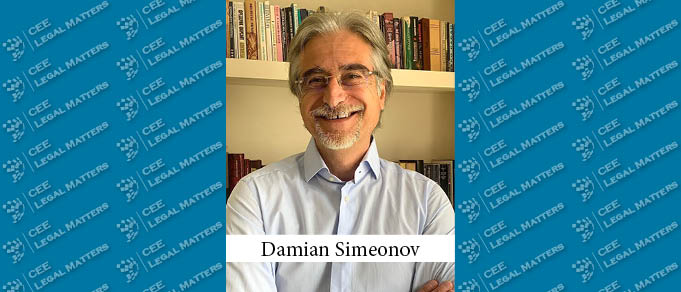With the country still helmed by an interim government, it would appear that Bulgaria remains in a position to grow and prosper and is a fruitful target for investors, according to Boyanov & Co Partner Damian Simeonov.
“The current political situation is dynamic,” Simeonov says. “We are going to have another early general election – scheduled for the middle of November – because the previous two were not able to produce a government, due to the fragmentation of Parliament and a lack of viable coalitions.” He also reports that the Bulgarian president has dismissed the Parliament and re-appointed practically the same caretaker government.
“There are but a few differences between this, new, caretaker government and the one that has been in place hitherto,” Simeonov reports. “Two of the ministers from the old one – that were the most active in their efforts to improve the ministries they headed and as a result attracted a lot of popularity – decided not to continue in the new government but instead to step up in the political spotlight and are intending to run in the upcoming elections.” He reports that these two political newcomers, who are not part of any political party, are polling “rather well” and stand to make a dent in the November election.
Seeing as how a caretaker government was in place, Simeonov says that there was not a lot of room for legislative innovations to take hold. “The Parliament did not do much (apart from amendments to the state budget to ensure the country can run until the end of the year and also increase pensions), but the caretaker government implemented some interesting changes,” he reports. “These include amendments to the way the Bulgarian Development Bank is allowed to finance legal entities.” The Bulgarian Development Bank has been, as he says, favoring large corporate entities so far, a focus the caretaker government sought to alter. “The interim government has placed a cap on how big of a loan the bank can issue, which should curb some of the potential misuse of funds.”
Furthermore, Simeonov says that the caretaker government had overhauled the business climate in general. “Efforts towards easing bureaucratic burdens and improving electronic services were taken, and a huge anti-corruption push has been made,” he reports. According to Simeonov, “the recently reported macroeconomic data paints a good picture in 2021, with a 10% increase of GDP, a 20% increase of exports, and a 4% uptick in investments, all compared to the same period in 2020.”
Also, Simeonov reports that the Bulgarian Recovery and Resilience plan, itself a part of a wider EU program for the post-pandemic economic recovery of member states, is expected to boost the economy of the country in the coming years. “These programs, in addition to recharging the economy as a whole, also present a transformation target in the form of green energy,” he says. “Bulgarian economy is based, to a degree of some 40%, on coal-produced electricity – these producers would have to have some major incentives in order to decarbonize and switch to, say, hydrogen-based fuel. Not to mention the political layer to this – because this power production is home to many jobs,” he reports.
Therefore, in the coming years, he expects the country will attract a lot of investment in renewable energy production, projects to increase energy efficiency (both of business and residential units), as well as decarbonization investments in sustainable transport to reduce the sector's carbon footprint. So, he adds, the EU Green Deal presents a significant opportunity for Bulgaria’s economy and he expects it to generate a lot of interesting legal work.
Finally, the Recovery and Resilience Plan targets other areas for transformation, such as transport and digital services, and Simeonov feels that these sectors will see an increase in investments as well. “In addition to that, the outsourcing services sector is strong too, representing 4-5% of GDP, with projections of increasing to 8-9% in 2022,” he says, adding that this follows an effort by the EU to “nearshore corporate opportunities” more so than in the past. In conclusion, Simeonov notes there is a growing number of “fintech, edutech, and other tech companies and startups, as well as equity and startup funds that are ready to invest in them. Also, the record-low interest rates of bank lending, as well as the practically negative interest rates on bank deposits, fuel the appetite for M&A deals and investment in real estate,” he says, ending on a positive note.



